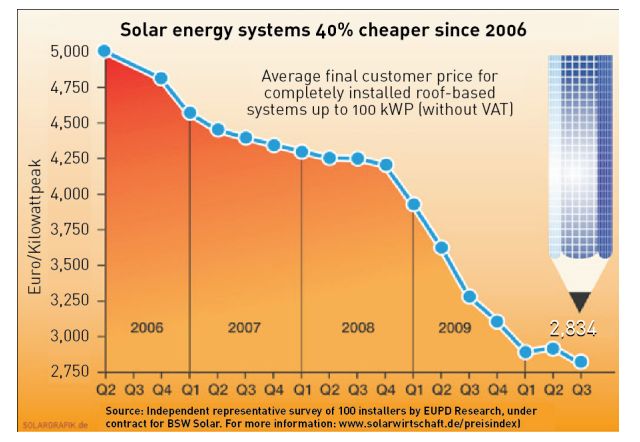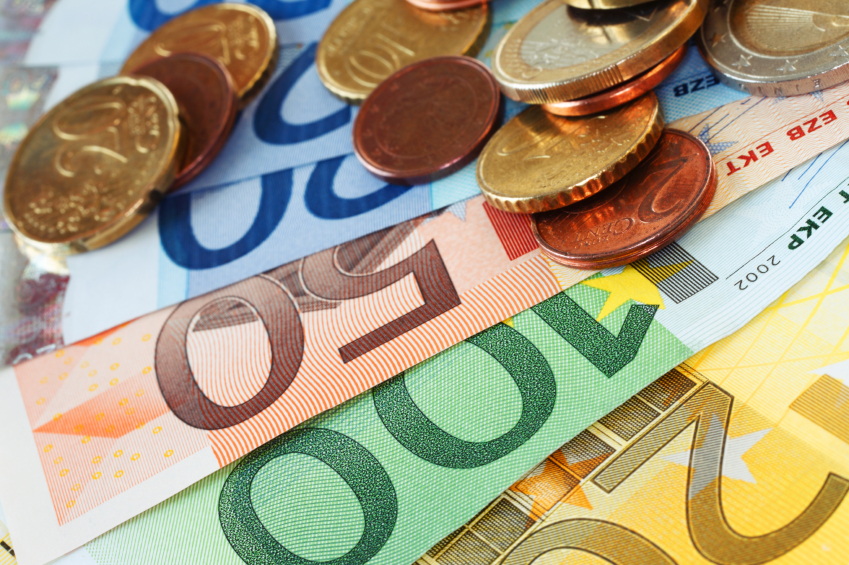
Germans invest their euros in clean energy. Why are Americans so stingy with their dollars?
In the U.S., any policy that raises taxes on anyone or causes anyone to pay more for anything — at least in a way that’s visible or traceable — has become verboten. It’s axiomatic in American politics that you can’t do it. The populace will revolt, right-wingers will demagogue you, you’ll be driven from office. There was even an amendment in Congress last year that would have disavowed any policy that would raise energy prices by even a cent (and every Republican voted for it!).
This is, of course, a mind-bendingly stupid and myopic constraint to put on public policy. It is quite frequently the case, in our family lives as well as our public lives, that we need to invest now for future benefits. If we can’t do that, we’re pretty much destined to spiral into decrepitude. And indeed that’s the direction America seems to be headed.
So one of the most startling things I learned in Germany last week is that the country’s renewable energy law — the EEG — is now and has always been popular with the public. Why is that startling? Because the EEG explicitly charges German ratepayers an extra fee. It’s right there on their electricity bills! In fact, the utilities, which are not big fans of the EEG, work to make the fee as prominent as possible. Today it amounts to about 15 percent of the bill, which isn’t huge (about four beers a month, I was told) but isn’t nothing either.
And yet the German public is OK with it. In 2005, a poll found that 25 percent thought the level of government support for renewable energy should stay the same — and 62 percent thought it should increase! In 2010, another poll found 73 percent of the public supported continuing or increasing the program. In 2011, EEG tariffs were, for a variety of contingent reasons, spiking. For the first time, 40 percent of Germans said the tariffs had gotten too high. (They’re expected to resume falling in coming years.) Then again, in the wake of Fukushima, fully 71 percent of the German public said they’d pay 20 euros ($29) more per month for clean, non-nuclear power.
So here you have a situation where a polity has decided on a worthy goal, spread the costs in a fair and transparent fashion, and embraced the results. It sounds simple, but from my vantage point inside U.S. politics it might as well be a miracle. Perhaps Germans are just different. Then again, feed-in tariffs have spread to some 50 countries and tend to be popular where they’re implemented. Maybe they see this happening and decide that what they’re getting is worth the money:
 Source: Bundesverband Solarwirtschaft
Source: Bundesverband Solarwirtschaft
So maybe it’s just Americans who are different — who want the benefits of good social and environmental policy without paying anything. Then again, there’s quite a bit of data showing that Americans would also be willing to pay extra to encourage clean energy.
So maybe the problem is not the American public but American politicians and American media. Maybe having one and a half out of two parties devoted to the interest of the wealthy, eager to demagogue any effort to dislodge the advantages of energy incumbents, relentless in their pursuit of cutting taxes on the well off and removing regulatory restraints on corporations, and in bed with a corrupt media trained to pass along their perspectives and talking points without challenge … maybe that’s the problem. Yeah, now I think we’re getting somewhere.




